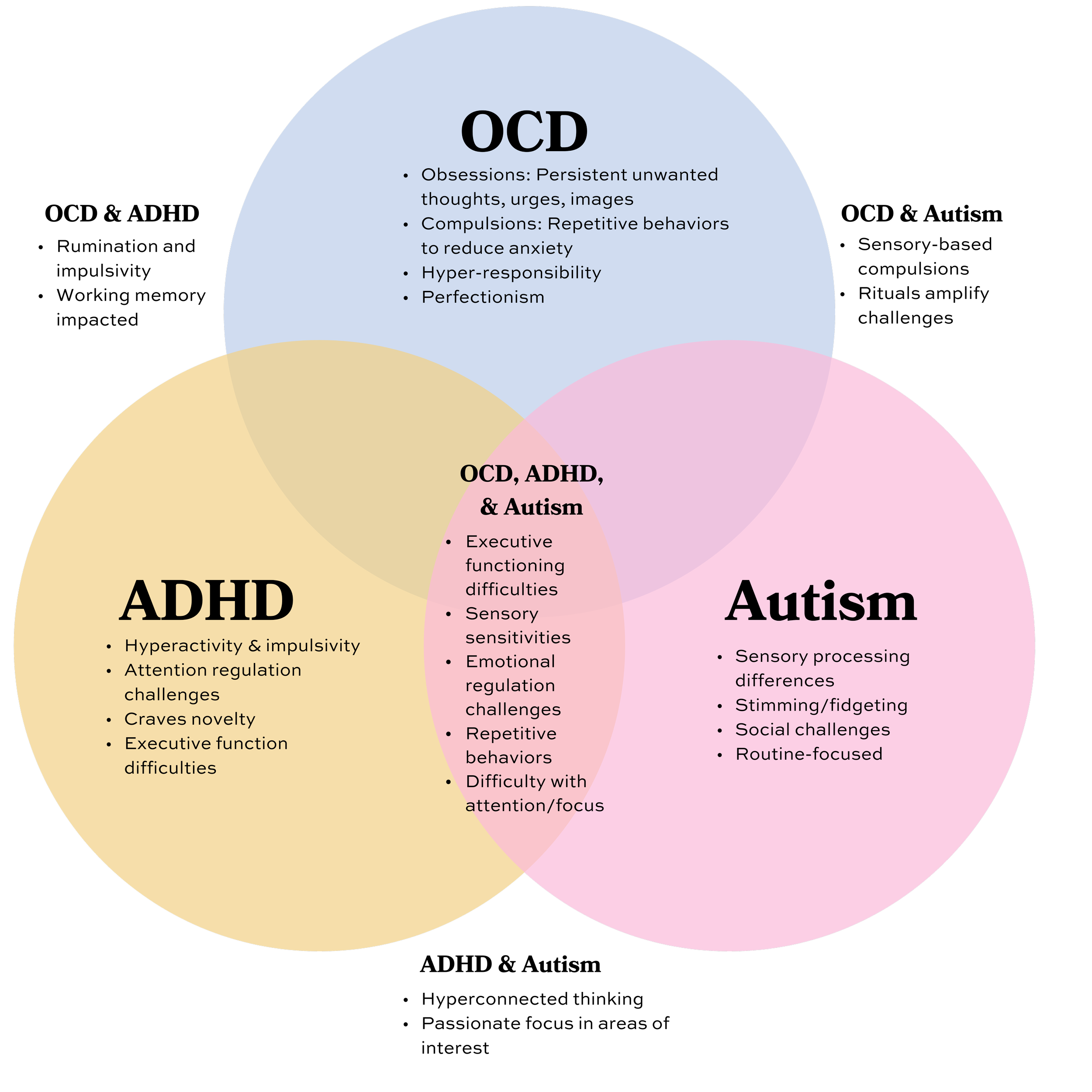Section Styles full-width overflow-decor
Coming Soon!
Neuroaffirming comprehensive assessments for ADHD, Autism, OCD, and Learning Disabilities for ages 6 and up. Sign up to be notified when scheduling opens!
Understanding the Connection: OCD, ADHD, Autism, and the Importance of Assessment
OCD, ADHD, and Autism are interconnected through their shared neurobiological underpinnings and overlapping traits, often referred to as neurodivergence. These conditions involve differences in brain structure and function, particularly in areas related to executive functioning, sensory processing, emotional regulation, and attention.
How They Interconnect:
Executive Functioning Challenges: Difficulty with organization, planning, and impulse control can appear in all three conditions, albeit in different ways (e.g., rigid routines in Autism, hyperfocus in ADHD, or compulsive behaviors in OCD).
Sensory Sensitivities: Overlapping sensory processing differences can contribute to heightened anxiety or discomfort, common in Autism and sometimes present in OCD and ADHD.
Repetitive Thoughts and Behaviors: While OCD is characterized by intrusive thoughts and compulsions, both ADHD and Autism can involve repetitive behaviors or hyperfixation, which may sometimes look similar.
Intolerance of Uncertainty: Difficulty managing uncertainty is a core issue in OCD and can contribute to rigidity in Autism and impulsivity or restlessness in ADHD.
Why Assessment is Valuable:
Clarifying Diagnosis: Symptoms often overlap, making it difficult to differentiate one condition from another without a thorough assessment. A comprehensive evaluation can uncover whether someone has one condition, a combination, or related traits.
Tailored Support: Knowing the specific diagnosis allows for individualized treatment and support. For example, OCD often benefits from Exposure and Response Prevention (ERP), while ADHD might require executive functioning strategies, and Autism might benefit from sensory and social accommodations.
Reducing Misdiagnosis: Misdiagnosis is common, particularly in women and marginalized groups, where symptoms may present atypically. Proper assessment ensures the right interventions are provided.
Empowerment Through Understanding: Assessment helps individuals understand themselves better, fostering self-compassion and providing tools to navigate their unique neurodivergence.
This interconnectedness underscores the importance of neuroaffirming, comprehensive assessments that consider the whole person, not just isolated symptoms.
OCD & Anxiety Center of Minnesota
•
OCD & Anxiety Center of Minnesota •

Section Styles full-width overflow-decor
Do more than manage symptomsReclaim your life and thrive.
Our dedicated team is ready to guide you through each step of your journey with compassion, expertise, and unwavering support.
Contact Us.

Section Styles full-width overflow-decor
Do more than manage symptomsReclaim your life and thrive.
Our dedicated team is ready to guide you through each step of your journey with compassion, expertise, and unwavering support.


